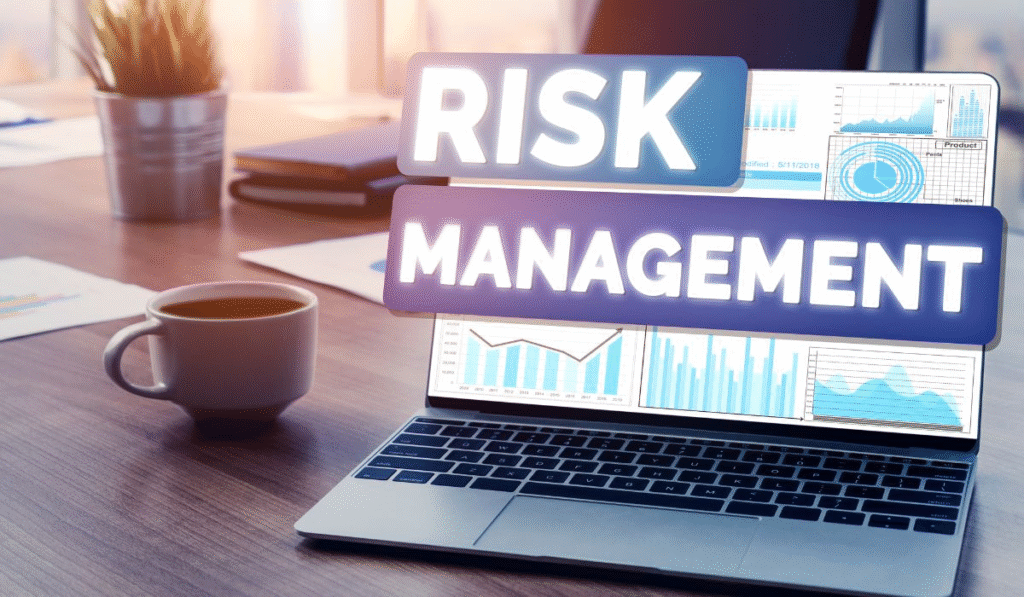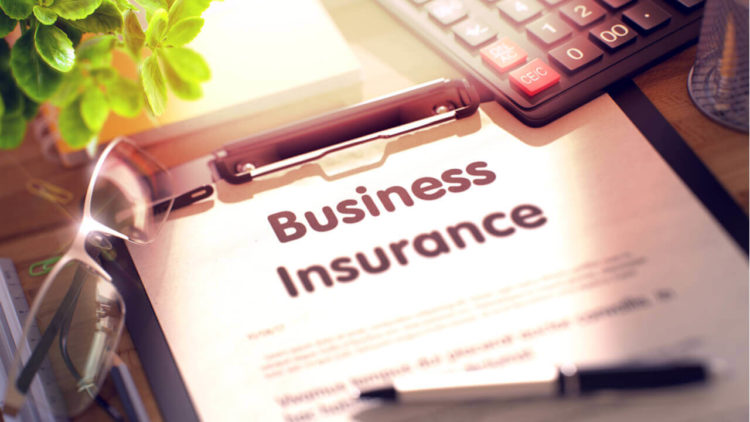Certainly! Here’s a comprehensive article on “What Is the Best Business Insurance Policy for Your Company?”, tailored to provide in-depth insights and guidance. This version is designed to be informative and helpful for readers seeking to understand business insurance in detail.
In the dynamic landscape of modern business, safeguarding your company’s assets, operations, and reputation is paramount. Business insurance serves as a crucial safety net, offering protection against unforeseen events that could otherwise lead to significant financial setbacks. Whether you’re a startup navigating the complexities of the market or an established enterprise seeking comprehensive coverage, understanding the nuances of business insurance is essential.
This article delves into the various facets of business insurance, helping you identify the policies that best align with your company’s unique needs.
Key Takeaway
- Comprehensive Coverage: Ensure your policy covers all potential risks relevant to your business.
- Regular Reviews: Periodically assess your insurance needs as your business grows and changes.
- Professional Guidance: Consult with insurance professionals to select the best policies for your company.
- Legal Compliance: Stay informed about local regulations to ensure you meet all insurance requirements.
For further assistance in selecting the best business insurance policy for your company, consider consulting with a licensed insurance broker or advisor who can provide personalized recommendations based on your specific needs.
Understanding Business Insurance
What Is Business Insurance?

Business insurance encompasses a range of policies designed to protect companies from financial losses due to events like property damage, legal claims, employee-related risks, and other unforeseen circumstances. The primary goal is to mitigate the financial impact of such events, ensuring business continuity and stability.
Why Is Business Insurance Important?
- Risk Mitigation: Protects against potential financial losses from lawsuits, property damage, or other liabilities.
- Legal Compliance: Certain types of insurance are legally required, depending on your location and industry.
- Credibility: Demonstrates to clients and partners that your business is responsible and trustworthy.
- Business Continuity: Helps ensure that your business can continue operations after a covered event.
Understanding Business Insurance: Beyond Basics
Business insurance is not merely a legal formality but a strategic investment. It serves several vital roles:
- Financial Protection: Offsets the high costs associated with lawsuits, property damage, employee-related claims, and business interruptions.
- Risk Management: Helps identify and mitigate risks before they impact your bottom line.
- Building Trust: Demonstrates reliability to clients, partners, investors, and employees by showing you’re prepared for potential setbacks.
- Compliance: In many jurisdictions and industries, carrying specific types of insurance is mandatory.
Understanding the nuances of business insurance requires distinguishing between the various types available and how they protect your assets.
Exploring Different Types of Business Insurance Policies in Depth
Commercial General Liability (CGL) Insurance
Why it matters: This policy is the foundation of business insurance and protects against common risks such as:
- Third-party bodily injury occurring on your premises.
- Damage to someone else’s property caused by your business activities.
- Legal costs associated with advertising injuries, such as libel or slander.
Who needs it: Almost every business, regardless of size or industry.
Professional Liability Insurance (Errors & Omissions)
Why it matters: Particularly relevant for consultants, service providers, and professionals, this insurance covers mistakes, negligence, or failure to deliver services as promised.
Case in point: A marketing firm that makes an error causing a client to lose revenue could face a costly lawsuit; professional liability insurance would cover the legal defense and settlements.
Commercial Property Insurance
Why it matters: Protects physical assets against fire, theft, vandalism, and natural disasters.
Important considerations: Policies can be tailored to cover buildings, inventory, equipment, furniture, and even outdoor signage.
Business Interruption Insurance
Why it matters: When disasters temporarily halt operations, this insurance covers lost income, rent, payroll, and other ongoing expenses.
Ideal for: Businesses that rely heavily on physical locations or complex supply chains.
Workers’ Compensation Insurance
Why it matters: Protects both employers and employees by covering medical expenses and lost wages resulting from work-related injuries or illnesses.
Legal requirement: Mandatory in most states/countries for businesses with employees.
Directors and Officers (D&O) Insurance
Why it matters: Protects your company’s leadership from personal losses arising from lawsuits related to their management decisions.
Key Person Insurance
Why it matters: Offers financial compensation to the business if a critical employee or owner dies or becomes disabled.
Benefit: Helps cover recruitment costs, lost income, or stabilizing the business during transition periods.
How to Identify the Best Insurance Policy for Your Compan
Comprehensive Risk Assessment
The first step to choosing the right insurance is a detailed risk assessment. Analyze your business operations, physical location, industry-specific risks, and legal requirements.
For example, a construction company will face different risks than a software startup. Identifying these helps focus on policies that address your unique vulnerabilities.
Coverage Limits and Deductibles
It’s essential to balance coverage limits with affordability. Too little coverage leaves your business exposed, while excessively high limits inflate premiums unnecessarily. Deductibles (your out-of-pocket cost before insurance pays) also affect premium pricing. Choosing a deductible that aligns with your financial capacity ensures you’re not caught off guard.
Evaluating Insurance Providers
Not all insurers are created equal. Look for providers with:
- Strong financial ratings (to ensure they can pay claims).
- Positive customer service reviews.
- Efficient claim processing times.
- Customized policy options.
Bundling Policies: The Business Owner’s Policy (BOP)
For many small and medium-sized businesses, bundling various insurance coverages (like liability, property, and business interruption) into a BOP can be cost-effective and simpler to manage.
Practical Steps to Obtain Business Insurance
- Inventory Your Assets and Risks: Create a detailed list of all business assets and potential hazards.
- Gather Quotes: Request quotes from multiple insurers and compare them.
- Consult with an Insurance Broker: Brokers provide expert advice tailored to your business’s specific needs.
- Review Policy Details: Understand coverage, exclusions, deductibles, and premiums thoroughly.
- Purchase and Maintain: Finalize your policy, keep documentation updated, and schedule regular reviews.
Real-Life Examples and Case Studies
- A retail store experiencing a fire loss but able to rebuild thanks to commercial property and business interruption insurance.
- A consultancy firm that avoided financial ruin after a client lawsuit was covered by professional liability insurance.
- A healthcare provider that successfully managed a data breach with the help of cyber liability insurance.
Types of Business Insurance: An In-Depth Look
Let’s explore the major types of insurance policies available and how they serve different business needs.
Commercial General Liability (CGL)
CGL insurance covers claims related to bodily injury, property damage, and personal or advertising injury caused by your business operations. For example:
- A customer slips and falls in your store.
- Your employee accidentally damages a client’s property.
- Your business faces accusations of libel in an advertising campaign.
CGL provides legal defense costs and settlement payments, protecting your business assets.
Professional Liability (Errors & Omissions)
Also known as E&O insurance, this is critical for professionals who provide advice or services. It covers negligence claims, errors, and omissions in your professional work that cause client financial loss.
Examples:
- A software developer whose product malfunctions.
- A consultant whose advice leads to financial harm.
Without E&O insurance, legal defense costs could be devastating.
Commercial Property Insurance
This policy protects physical assets including buildings, equipment, furniture, inventory, and signage from damage due to fire, theft, vandalism, or natural disasters.
Businesses with significant investments in physical assets must prioritize this coverage.
Business Interruption Insurance
When a covered event forces you to halt operations, this insurance replaces lost income and covers ongoing expenses like rent, payroll, and utilities. It can be a lifesaver for businesses relying heavily on physical premises or complex supply chains.
Workers’ Compensation Insurance
Almost universally mandated, this insurance covers medical costs and lost wages if employees are injured or become ill on the job. It also protects employers from legal claims related to workplace injuries.
Cyber Liability Insurance

In an era dominated by digital data, cyber liability insurance protects against losses resulting from data breaches, ransomware, hacking, and other cyber threats. This includes costs for data recovery, legal fees, regulatory fines, and customer notification.
Key Person Insurance
If your business depends on a few critical individuals, this policy provides funds to help the company weather the loss or incapacitation of those key people.
Tailoring Insurance to Your Business
Industry-Specific Risks
Each industry has distinct risks:
- Construction: High risk of injury and property damage.
- Retail: Theft and slip-and-fall incidents.
- Tech: Cyberattacks and intellectual property risks.
- Healthcare: Medical malpractice and privacy breaches.
Understanding your industry’s unique risk profile guides your insurance choices.
Business Size and Stage
Startups may need basic coverage initially but should plan to expand as they grow. Larger enterprises often require customized, layered policies to cover complex risks.
Geographic Location
Location impacts risk:
- Areas prone to hurricanes may need flood insurance.
- Earthquake zones require special coverage.
- Urban locations might have higher theft or liability risks.
Assessing Asset Value
Insure your buildings, equipment, and inventory for their replacement cost, not just market value, to avoid underinsurance.
Selecting the Best Provider
Financial Strength and Reputation
Choose insurers with high financial ratings (e.g., A.M. Best, Moody’s) and strong track records in claims handling.
Customizable Policies and Endorsements
Look for flexible plans that allow endorsements or riders to add specific coverage.
Customer Service and Claims Support
Prompt and fair claims handling can save your business in crises.
Cost vs. Value
While cost matters, the cheapest policy often offers the least protection. Balance premium affordability with comprehensive coverage.
Managing Your Insurance Over Time
- Review your policy annually or after major business changes.
- Update coverage when you expand operations, add employees, or invest in new assets.
- Train employees on risk management to potentially lower premiums.
- Maintain detailed records of assets, incidents, and claims.
Common Business Insurance Challenges and How to Overcome Them
Underinsurance
Many businesses underestimate risks or asset values. Regular reviews and professional audits help avoid this.
Coverage Gaps
Ensure your policies cover all critical areas to prevent uncovered liabilities.
Legal and Regulatory Changes
Stay informed about new laws that may affect insurance requirements.
Real-World Case Studies
- A restaurant that avoided bankruptcy after a kitchen fire due to adequate property and business interruption insurance.
- A marketing firm saved from a costly client lawsuit thanks to professional liability coverage.
- An e-commerce company recovering from a cyberattack with cyber liability insurance.
Types of Business Insurance Policies
Commercial General Liability (CGL) Insurance
CGL insurance is fundamental for most businesses. It covers:
- Bodily Injury: Injuries occurring on your business premises or due to your products/services.
- Property Damage: Damage caused by your business operations to third-party property.
- Personal and Advertising Injury: Claims related to libel, slander, or false advertising.
Determining the Best Insurance Policy for Your Company
Assessing Your Business Needs
- Industry Type: Different industries have unique risks and requirements.
- Size of Business: Larger businesses may need more comprehensive coverage.
- Location: Local laws and regulations can influence required insurance.
- Assets: The value of your physical and intellectual property.
- Employees: The number and roles of employees can affect insurance needs.
Evaluating Potential Risks

Identify potential risks specific to your business, such as:
- Natural Disasters: Floods, earthquakes, or hurricanes.
- Legal Risks: Potential lawsuits or regulatory fines.
- Operational Risks: Equipment failure or supply chain disruptions.
Comparing Insurance Providers
When selecting an insurance provider:
- Reputation: Research customer reviews and industry ratings.
- Coverage Options: Ensure they offer the policies you need.
- Customer Service: Evaluate their responsiveness and support.
- Cost: Compare premiums and deductibles.
Also read: What Is the Best Property Insurance Policy for Your Needs?
Conclusion
Selecting the right business insurance policy is a critical decision that requires careful consideration of your company’s unique needs and risks. By understanding the various types of insurance available and assessing your specific requirements, you can ensure that your business is adequately protected against potential threats.
Remember, the best insurance policy is one that provides comprehensive coverage tailored to your business’s operations, size, and industry. Regularly reviewing and updating your insurance policies will help maintain optimal protection as your business evolves.
FAQs
What is the difference between general liability and professional liability insurance?
- General Liability: Covers physical injuries and property damage.
- Professional Liability: Covers errors, omissions, or negligence in professional services.
Is workers’ compensation insurance mandatory?
In many regions, yes. It’s typically required for businesses with employees.
Can I bundle different insurance policies?
Many providers offer Business Owner’s Policies (BOPs) that combine various coverages at a discounted rate.
How do I determine the amount of coverage I need?
Assess the value of your assets, potential liabilities, and industry standards to determine appropriate coverage limits.
Are there discounts available for small businesses?
Some insurers offer discounts for bundling policies, maintaining a claims-free record, or implementing safety measures.
What should I do if I need to file a claim?
Contact your insurance provider promptly, document the incident thoroughly, and follow their claims process.
Can I change my coverage as my business grows?
Yes, it’s advisable to review and adjust your coverage periodically to ensure it aligns with your business’s evolving needs.


